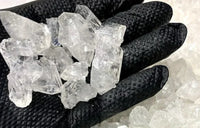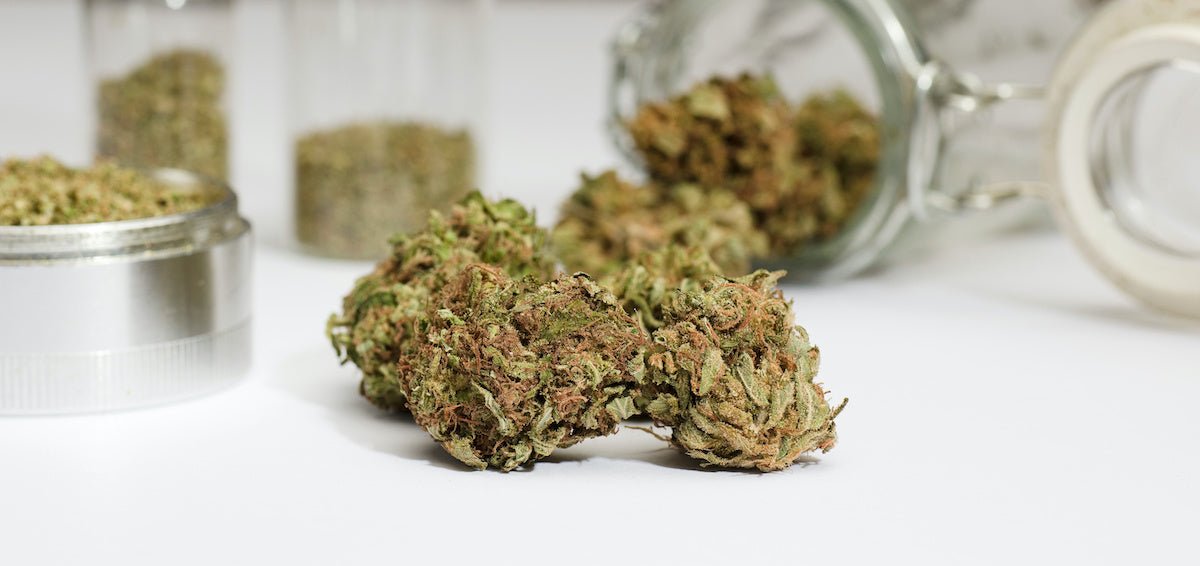Recent posts
-

-
 What Are THCa Diamonds?October 14, 2025
What Are THCa Diamonds?October 14, 2025 -
 Delta 9 Gummies GuideOctober 8, 2025
Delta 9 Gummies GuideOctober 8, 2025 -
 Head High vs Body High: A Guide to Cannabis EffectsOctober 1, 2025
Head High vs Body High: A Guide to Cannabis EffectsOctober 1, 2025 -
 What is THCA Crumble?September 22, 2025
What is THCA Crumble?September 22, 2025 -
 10 Ways to Elevate Self-Care Awareness MonthSeptember 14, 2025
10 Ways to Elevate Self-Care Awareness MonthSeptember 14, 2025

THC vs. THCA: What's The Difference?
By Zero Point
Table of Contents
In the ever-evolving world of cannabis, understanding the intricacies of its compounds is crucial for both enthusiasts and newcomers alike. Among these, Tetrahydrocannabinol (THC) and Tetrahydrocannabinolic acid (THCA) stand out due to their prominence and effects. But what sets them apart? This blog post dives into the differences between THC vs THCA, shedding light on their unique characteristics and implications for users.
What is THC?
Tetrahydrocannabinol (THC) is the primary psychoactive compound in cannabis that is responsible for the high that users experience. It works by binding to the cannabinoid receptors in the brain and affects areas governing memory, pleasure, movements, thinking, concentration, coordination, and sensory and time perception. THC is utilized both recreationally and medically, with applications ranging from pain relief and appetite stimulation to potentially aiding in the management of conditions like glaucoma and multiple sclerosis.
What is THCA?

Tetrahydrocannabinolic acid (THCA) is a non-psychoactive cannabinoid found in the raw cannabis plant. THCA is the acidic precursor to THC, which means that THC originates as THCA before it's converted through the process of decarboxylation, typically initiated by heat. In its raw form, THCA has shown potential for various therapeutic uses, such as anti-inflammatory and neuroprotective treatments.
THCA vs THC Differences
The fundamental difference between THCA and THC is their psychoactivity. THCA does not produce psychoactive effects because it does not effectively bind to CB1 receptors in the brain. On the other hand, THC does, which leads to the various sensory effects associated with getting high. Chemically, the only thing that separates them is the presence of a carboxyl group in THCA, which is lost when converted into THC through decarboxylation.
THCA vs THC Effects
THC is renowned for its psychoactive effects, such as euphoria, relaxation, and, in some cases, anxiety and paranoia. It also has significant therapeutic benefits, including pain relief and nausea reduction. THCA, while not psychoactive, holds promise primarily in medical applications, having shown anti-inflammatory properties and potential as an antiproliferative agent which might help in fighting tumor growth.
Is THC Stronger Than THCA?

The assertions that THC is stronger than THCA miss the mark significantly. Such comparisons are fundamentally flawed since THCA converts into THC through the process of decarboxylation. When you use our high THCA content flower, what you actually experience are the effects of THC.
Similarly, if you come across an edible that claims to contain THCA, be wary—as this is misleading. Ingested THCA does not convert to THC, so products marketed this way may not be providing what they promise.
Conclusion
Both THC and THCA are crucial components of the cannabis plant, each with unique characteristics and benefits. While THC is best known for its psychoactive effects, THCA offers promising non-psychoactive benefits, especially for those interested in the medicinal aspects of cannabis without the high. Understanding these differences helps consumers and patients make informed decisions about which type of cannabinoid suits their needs and preferences. As research continues and as the legal landscape evolves, the potential applications of both THC and THCA are likely to expand, providing exciting prospects for therapeutic and recreational users alike.








